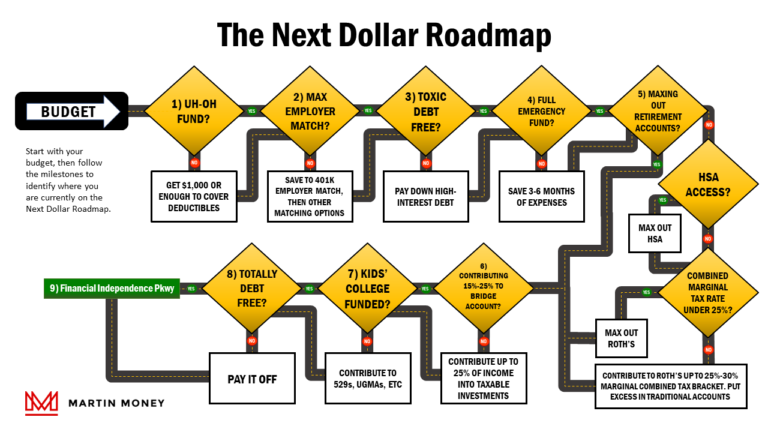Should I Borrow From My 401(k)?
Should I borrow from my 401(k)? The 401(k) loan can be an attractive option for getting quick cash, but it isn’t without its drawbacks. We recommend avoiding a 401(k) loan if possible.
What is a 401(k) loan and how does it work?
When times are tough, and sometimes when they’re not, many people turn to their 401(k) as a quick and accessible source of cash.
A 401(k) loan is a loan that individuals can take out against their existing 401(k) balance. The government allows account holders to withdraw the lesser of $50,000 or one-half of their 401(k) balance as a loan.
The borrower typically has 5 years to repay the amount borrowed plus interest.
The interest rate is typically 1% to 2% above the current prime rate. (On November 3, 2022, prime was 7%.)
401(k) Loans are not taxable, assuming the balance is repaid on time, but keep in mind that repayment will be made using after-tax dollars. More on that in a bit.
401(k) loans can be a more favorable source of cash than a direct withdrawal since an unqualified withdrawal is subject to taxes and a 10% penalty.
If you’re in the 22% or 24% tax bracket, that basically would mean a third of the withdrawal would go to Uncle Sam. Not ideal.
Loans can also be more favorable than a 401(k) hardship withdrawal, which is difficult to qualify for and in many cases, still subject to a 10% penalty.
But does this mean a 401(k) loan is a wise way to get your hands on cash quickly? Let’s look at some pros and cons of these loans to understand more.
Why should I do it? (Pros)
There are some appealing aspects of 401(k) loans when compared to other sources of debt.
1. You are the bank
First, in a 401(k) loan, you’re the borrower and the lender. There are no banks or 3rd parties extending credit to you, so you won’t need any credit reviews or approvals to take out the loan.
2. Interest Growth
The interest paid on the loan goes back into your account along with the principal.
As a result, assuming market returns haven’t eroded your account balance, you should have more money in the 401(k) account after the loan is fully repaid.
Repayment of the loans is also usually quite painless. In most cases, your employer will allow you to make repayments by withholding them from your paycheck so you can put it on autopilot and forget about it.
3. Debt Consolidation
If you are carrying several high-interest debts that can be consolidated or even paid off completely, it might make sense to use a 401(k) loan.
The reason is it can allow you to quickly remove much of the headache of dealing with lenders and their collectors, and effectively make you the sole owner of your obligations in one step.
If you decide to go this route, we recommend paying back your 401(k) loan as quickly as possible as part of Milestone 2 on the Next Dollar Roadmap.
4. Competitive Interest Rate
Finally, the interest rate on a 401(k) loan is normally lower than several other potential sources of credit. Since there’s no bank or lending agency seeking to profit from the loan, rates are competitive and fair.
Why shouldn’t I do it? (Cons)
Although 401(k) loans may be appealing on the surface, there are certainly some drawbacks.
1. Fees
To begin with, your account custodian will likely charge some sort of origination or loan administration fee. Usually, in the neighborhood of $50 to $100 each, it isn’t a huge amount, but if you only need a small infusion of cash it certainly makes the option less attractive.
2. Repayment Problems
Next, if you fail to repay a 401(k) loan within the required repayment period, the entire outstanding balance becomes taxable and subject to a 10% penalty (unless you’re 59.5 or older).
An outcome like this would make the decision to borrow potentially catastrophic. Absolutely do not take out the loan unless you are very confident you can pay it back.
3. Job Changes
Another disadvantage of 401(k) loans is the challenge they create as it relates to a job change. If you’re fired or decide to leave for employment elsewhere, your balance may be due immediately or within some compressed grace period.
If you don’t have the cash on hand this could leave you in a real pickle since you won’t have an income with which to establish credit with a new lender.
The other options for loans in this scenario are in the predatory neighborhood (payday and title loans) and you really don’t want to go there.
This could also prevent you from being able to take a new job with another employer.
It’s not the sort of thing you might expect to happen, but it would be a shame to have to decline a dream offer or take a big financial hit to change companies.
4. Taxes
While 401(k) loans are not taxable events, the repayments are made using after-tax dollars. Then, the withdrawals are taxed again when made in retirement.
While I will readily admit that this amount could be negligible, this double taxation basically nullifies the tax advantages that make 401(k)s attractive in the first place.
5. Opportunity cost of non-invested funds
In many cases, you will not be permitted to contribute to your 401(k) while there is an outstanding balance against the account.
Even if you are, it’s unlikely that you’d be borrowing money from an account while you are equally capable of contributing to it.
As a result, there will be some period of time where no contributions are being made to your 401(k), and that’s to say nothing of other tax-advantaged vehicles which would probably also go unfunded.
As we pointed out in our compounding interest post, time in the market is a key ingredient to financial independence. A 401(k) loan leaves you on the sidelines which can be very costly in the long run.
The Bottom Line
First off, a 401(k) loan isn’t really a loan. It’s your money.
When evaluating the costs of a 401(k) loan it’s fair to view it as the movement of funds from one pocket (like the retirement pocket) to another (like your cash flow for today).
With that in mind, taking a loan from your 401(k) is superior to many forms of debt. Payday loans, personal loans, title loans, heck even a lot of credit cards will leave you with less desirable terms and the opportunity to severely damage your credit.
However, it’s still a debt that must be repaid in the face of significant consequences in the form of taxes and stiff penalties from the IRS. Neither of these is ideal.
Instead, we recommend following our proven path to financial independence, the Next Dollar Roadmap.
Milestones one and three discuss the need for emergency funds and how having these stashes of cash protects you from taking on unnecessary debt that will destroy any opportunity to build lasting wealth.
We’d also like you to ask yourself why you’re in this position in the first place.
Is there a true hardship or are you considering tapping the 401(k) as a result of risky decisions or choices?
Is your spending outpacing your income or using it all so you have nothing left to save for emergencies?
If so, always remember that you won’t be able to make any progress in building wealth without ensuring you have more cash coming in than going out.
Looking at the bigger picture, consider whether or not a more thorough financial behavior change is needed to get back on track.
In summary, there aren’t many cases where taking out a loan against a 401(k) makes sense.
I suppose an argument can be made for the debt consolidation and elimination options it can provide. See our comments earlier in the post regarding this.
Otherwise, avoid touching your 401(k) until you’re retired.







